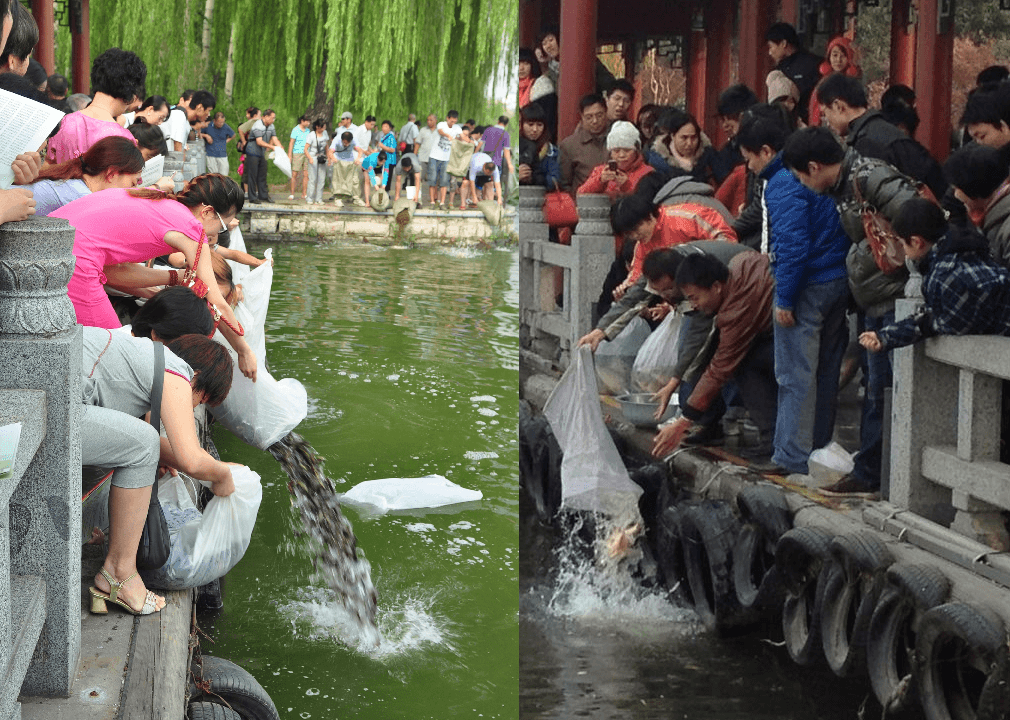According to Chinese Buddhist folk tradition, the first day of the second month in the Chinese lunar calendar is a time when people participate in the practice of fangsheng, meaning animal release, by purchasing animals marked for slaughter and then letting them go into the wild.
A group releases fish into Daming Lake. Sina Weibo





